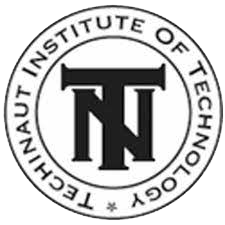1
Digital Binary Computer Institute, a Techinaut Institute of Technology franchise in Almora, Uttarakhand, offers a specialized six-month course in C++ …
Digital Binary Computer Institute, a Techinaut Institute of Technology franchise in Almora, Uttarakhand, offers a specialized six-month course in C++ programming. This Course aims to equip students with a solid foundation in programming concepts and practical skills in C++ development. This article explores the Course's objectives, curriculum structure, key sections, and the significance of mastering C++ programming skills in today's technology-driven world.
1. INTRODUCTION:
In software development, proficiency in programming languages is essential for individuals seeking careers in computer science and related fields. Recognizing the demand for skilled programmers, Digital Binary Computer Institute offers a comprehensive course in C++ programming. As a Techinaut Institute of Technology franchise, it ensures high-quality education and practical training for students in Almora, Uttarakhand.
2. OBJECTIVES OF THE COURSE:
The primary objective of the C++ programming course is to provide students with comprehensive knowledge and practical skills in C++ programming language. The Course aims to achieve the following objectives:
- Familiarize students with the fundamentals of C++ programming language and its applications.
- Introduce students to object-oriented programming concepts and their implementation in C++.
- Develop proficiency in writing, compiling, and debugging C++ programs.
- Enable students to design and implement complex software solutions using C++.
- Prepare students for entry-level positions in software development, computer programming, and related fields.
3. CURRICULUM STRUCTURE:
The C++ programming course at Digital Binary Computer Institute is structured into multiple sections, each focusing on specific aspects of C++ programming and software development. The following are the key sections covered in the six-month duration course: 3.1. Introduction to C++
- Overview of C++ programming language and its evolution
- Comparison with other programming languages and their features
- Understanding the importance of C++ in software development
- Introduction to object-oriented programming (OOP) principles
- Understanding classes, objects, inheritance, polymorphism, and encapsulation
- Implementing OOP concepts in C++ through practical examples
- Syntax and semantics of C++ programming language
- Data types, variables, constants, and keywords in C++
- Input and output operations using standard input/output streams
- Arithmetic, relational, logical, bitwise, and assignment operators in C++
- Using operators and expressions for mathematical and logical computations
- Operator precedence and associativity rules in C++
- Decision-making and looping constructs in C++ (if, switch, while, do-while, for)
- Using control statements to manipulate program flow and execution
- Writing structured and modular code for better program control
- Function declaration, definition, and invocation in C++
- Passing arguments to functions by value and reference
- Returning values from functions and handling function overloading
- Understanding pointers and their usage in C++ programming
- Manipulating memory addresses and accessing data using pointers
- Working with arrays and multidimensional arrays in C++
- Introduction to classes and objects in C++
- Encapsulation and data hiding using access specifiers (public, private, protected)
- Binding member functions to objects and accessing class members
- Overloading functions and operators for different data types
- Implementing polymorphism and dynamic binding through function overloading
- Operator overloading for user-defined data types and custom classes
- Introduction to inheritance and its significance in C++ programming
- Extending classes through inheritance and deriving new classes
- Implementing code reuse and modularity using inheritance
- Understanding virtual functions and late binding in C++
- Implementing polymorphism and dynamic dispatch through virtual functions
- Writing code that utilizes runtime polymorphism for flexible behaviour
- Introduction to templates for generic programming in C++
- Implementing class and function templates for code reuse and flexibility
- Handling runtime errors and exceptions using exception handling mechanisms in C++
3. SIGNIFICANCE OF PROGRAMMING COURSE IN C++ COURSE:
The C++ programming course offered by Digital Binary Computer Institute holds significant importance in preparing students for software development and programming careers. Mastering C++ programming skills offers numerous benefits, including:
- Enhanced employability in industries requiring software development expertise, such as technology, finance, and gaming.
- Ability to design and implement complex software solutions using object-oriented programming principles.
- Proficiency in debugging and optimizing C++ code for improved performance and efficiency.
- Preparation for advanced studies and specialization in computer science and related fields.
- Opportunity to contribute to open-source projects and collaborate with the global developer community.
CONCLUSION:
The C++ programming course at Digital Binary Computer Institute is a comprehensive training program for individuals aspiring to excel in software development and programming. By providing structured instruction and hands-on experience in C++ programming, the Course equips students with the necessary skills to succeed in today's competitive job market. With its focus on practical application and real-world projects, the C++ programming course ensures that students are well-prepared to meet the demands of the software industry in Almora, Uttarakhand, and beyond.
Lectures = 130 HRS
Practical/Tutorials = 130 HRS
Total = 260 HRS


